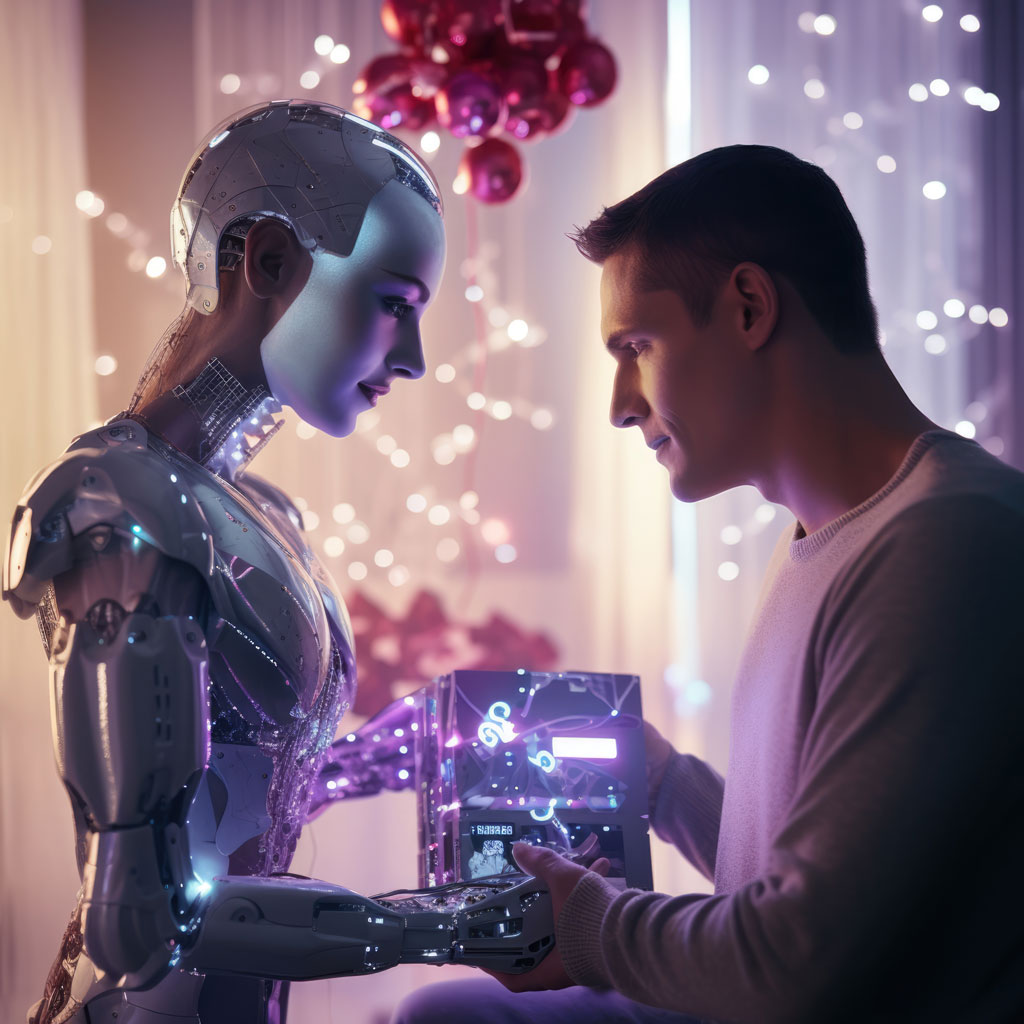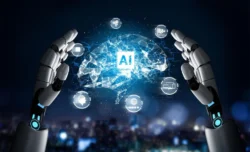Artificial Intelligence (AI) is transforming the world at an unprecedented pace, reshaping industries, economies, and daily life. Its potential to enhance human capabilities is immense, but so are the challenges and risks it poses. This article explores the multifaceted impact of AI on humanity, examining its benefits, ethical dilemmas, societal implications, and the path forward to ensure its responsible development.
Table of Contents
The Promise of AI: Enhancing Human Potential
AI’s ability to process vast amounts of data, recognize patterns, and make decisions has led to breakthroughs across various sectors. Here are some key areas where AI is making a positive impact:
1. Healthcare Revolution
AI is revolutionizing healthcare by enabling faster diagnoses, personalized treatments, and predictive analytics. Machine learning algorithms can analyze medical imaging to detect diseases like cancer with accuracy rivaling human experts. For instance, AI systems can identify early signs of breast cancer in mammograms, often outperforming radiologists in controlled studies. Wearable devices powered by AI monitor vital signs in real-time, helping prevent emergencies for patients with chronic conditions.
Additionally, AI accelerates drug discovery by simulating molecular interactions, reducing the time and cost of developing new medications. Companies like DeepMind have used AI to predict protein structures, a breakthrough that could unlock treatments for previously intractable diseases.
2. Economic Growth and Productivity
AI is driving economic transformation by automating repetitive tasks and enhancing decision-making. In manufacturing, AI-powered robots optimize production lines, reducing waste and increasing efficiency. In finance, algorithms detect fraudulent transactions with high precision, saving billions annually. According to a 2023 report by McKinsey, AI could add $13 trillion to the global economy by 2030, boosting GDP growth by 1.2% annually.
AI also enables small businesses to compete with larger corporations by providing access to sophisticated tools for marketing, customer service, and data analysis. Chatbots, for example, handle customer inquiries 24/7, improving service while cutting costs.
3. Education and Accessibility
AI is democratizing education by personalizing learning experiences. Platforms like adaptive learning systems use AI to tailor content to individual students’ needs, improving outcomes for diverse learners. Language models facilitate real-time translation, breaking down language barriers and making knowledge accessible globally.
For people with disabilities, AI-powered tools like speech-to-text software and computer vision systems enhance independence. For example, AI-driven prosthetics adapt to users’ movements, offering greater mobility and functionality.
4. Environmental Sustainability
AI is a powerful ally in combating climate change. Machine learning optimizes energy consumption in smart grids, reducing waste. AI models predict weather patterns and natural disasters with greater accuracy, aiding disaster preparedness. In agriculture, AI-driven precision farming minimizes water and pesticide use, promoting sustainable practices.
For instance, AI systems analyze satellite imagery to monitor deforestation, helping governments and NGOs track illegal logging in real-time. These applications demonstrate AI’s potential to address pressing global challenges.
The Challenges: Risks and Ethical Dilemmas
While AI’s benefits are profound, its rapid advancement raises significant concerns. Unchecked development could exacerbate inequality, erode privacy, and even pose existential risks. Below are key challenges humanity must navigate:
1. Job Displacement and Economic Inequality
AI’s automation capabilities threaten jobs in sectors like manufacturing, transportation, and customer service. A 2020 World Economic Forum report estimated that by 2025, automation could displace 85 million jobs globally while creating 97 million new ones. However, the transition may widen inequality, as high-skill jobs in AI development thrive while low-skill workers face unemployment.
Reskilling programs are essential to mitigate this impact, but their implementation lags behind AI’s rapid adoption. Without intervention, economic disparities could intensify, fueling social unrest.
2. Privacy and Surveillance
AI’s reliance on data raises serious privacy concerns. Facial recognition systems, often powered by AI, are used for surveillance in many countries, risking misuse by governments or corporations. Data breaches involving AI systems could expose sensitive personal information, as seen in high-profile cases like the 2017 Equifax breach.
Moreover, AI’s ability to analyze behavioral data from social media and devices enables targeted advertising that can manipulate consumer choices, raising ethical questions about consent and autonomy.
3. Bias and Discrimination
AI systems can perpetuate biases present in their training data. For example, hiring algorithms have been shown to favor male candidates when trained on male-dominated resumes. Similarly, predictive policing tools have disproportionately targeted minority communities due to biased historical data.
Addressing bias requires diverse datasets, transparent algorithms, and ongoing audits. However, achieving fairness in AI remains a complex challenge, as biases are often deeply embedded in societal structures.
4. Existential Risks
Some experts, including Elon Musk and Stephen Hawking, have warned that advanced AI could pose existential risks if it surpasses human control. While superintelligent AI remains speculative, the development of autonomous weapons—often called “killer robots”—is a more immediate concern. These systems could make lethal decisions without human oversight, raising ethical and security risks.
Ensuring AI remains aligned with human values requires robust governance frameworks and international cooperation, which are currently underdeveloped.
Societal Implications: Reshaping Human Interaction
AI is not just a technological tool; it’s reshaping how humans interact, work, and perceive the world. Social media platforms use AI to curate content, influencing public opinion and sometimes amplifying misinformation. Deepfake technology, powered by AI, creates hyper-realistic fake videos, challenging trust in media.
On a personal level, AI companions and chatbots are changing human relationships. While they offer emotional support for some, overreliance could reduce genuine human connection, raising questions about mental health and social isolation.
The Path Forward: Responsible AI Development
To maximize AI’s benefits while minimizing its risks, humanity must prioritize responsible development. Here are key strategies:
1. Ethical Frameworks and Regulation
Governments and organizations must establish clear ethical guidelines for AI development. The European Union’s AI Act, proposed in 2021, is a step toward regulating high-risk AI systems, emphasizing transparency and accountability. Global standards, similar to those for nuclear technology, could prevent misuse and ensure safety.
2. Inclusive Development
Diverse teams in AI development can reduce bias and ensure systems serve all communities equitably. Public-private partnerships can fund research into ethical AI, making it accessible to smaller organizations and developing nations.
3. Education and Workforce Transition
Investing in education and reskilling programs is critical to prepare workers for an AI-driven economy. Governments, businesses, and educational institutions must collaborate to provide accessible training in AI-related fields.
4. Public Awareness and Engagement
Educating the public about AI’s capabilities and limitations fosters informed decision-making. Transparent communication from developers about how AI systems work can build trust and reduce fear.
Conclusion
AI’s impact on humanity is profound and multifaceted, offering transformative benefits alongside significant risks. By harnessing its potential responsibly, we can address global challenges, enhance human capabilities, and create a more equitable future. However, this requires proactive collaboration among governments, industries, and communities to ensure AI serves humanity’s best interests. The choices we make today will shape the role AI plays in our world tomorrow.







